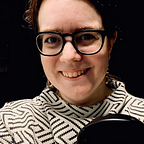How Search Engines and Social Media are Killing Exploration
I’d step in, and there they were. Rows and rows of books on end. Some, too high for me to reach.
I’d take the little stool, prop my little 9 years-old self on it, and just read all the titles on the shelf. And then, I would take the little stool and move it in some other random row, and start the whole process again.
Eventually, I’d come out with the most bizare assortment of books one could ever imagine — half of which on topics I had never even heard of prior to walking in an hour before.
Such was the magic of Libraries.
Of course, you could simply look up a topic, or a book, in those old filing cabinets. Come out with the exact call number of the one item you’d be taking out.
But I’m ready to bet that your childhood memories of library trips are more similar to mine; revolving around this thrilling sense of discovery.
In the way we’ve crafted the Internet, I feel we’ve lost that.
In response to data overload, we’ve devised convergent systems that excel at Search, but do very poorly at Exploration.
Search vs Exploration
It seems our current, main-stream model for technology widely democratizes the search experience to anyone with a computer, while reserving the exploration experience for select few, mainly as an off-line process.
- Google and other popular search engines ask you to type a very precise query and will drill down your search, sometimes including synonyms or similar content. You get more of what you set out looking for.
- Twitter, Facebook, Reddit and other social networks will feed you content based on popularity (with variations on who has weight on the votes). This created both an incentive for content publishers to write things that converge with their audience’s current views, and results in feeds being populated by a network of often very similarly-minded people. We essentially get exposed to more of the same; we are rarely challenged in our views (unless we are one of those rare people cultivating a social circle of very wide spectrums of opinions).
The result of the mechanisms currently in place is that we do not easily access plurality of perspectives on a same topic; we do not help users discover what they are completely unaware of but that they might like; we do not introduce that equivalent of browsing through random stacks of books to unearth a new passion, or hearing a dissident voice around a dinner table.
What if Google had a convergent and a divergent radio button where you could chose whether you would like to search (convergent), or explore (divergent)?
What if Search Engines allowed you to put words that described yourself (in whatever way you identify yourself as), and see what kind of topics or ideas the search engine would find interesting for your profile?
What if aggregated data was used to show you not only websited and entries correlated to the very topic you are reading on, but rather, completely unrelated topics that somehow statistically correlate with this particular read?
What if social media consistently displayed a counter-opinion piece to any given article, or what if it let you ‘’Challenge’’ instead of simply ‘’Like’’ a post, perhaps with the possibility to linking to other sources you feel would be relevant?
What if we introduced a certain amount of randomness in search results, to account for the discovery principle?
There are certain tools such as Stumbleupon, Pandora and Musicovery, that have taken first dabs at exploration. But what if this became mainstream, instead of peripheral?
The Future of Search?
Of course, being able to search, and to search well, is crucial. But the ability to explore is also paramount for the Creators of tomorrow.
Although we can brainstorm in our minds, and come up with clever ways to craft searches that will ultimately let us explore, and although we can look at Curators as a proxy for our own exploration, a new model of search could certainly support us better.
One where exploring is not only made possible, but designed and integrated in our default experience.
Exploration is, after all, at the core of our human experience, and creativity. It is the backbone of human invention and progress. Exploration is what drives our growth as both individuals and civilization.
Technology — ever at the service of humans — could be supporting this core function, as it has many others.
